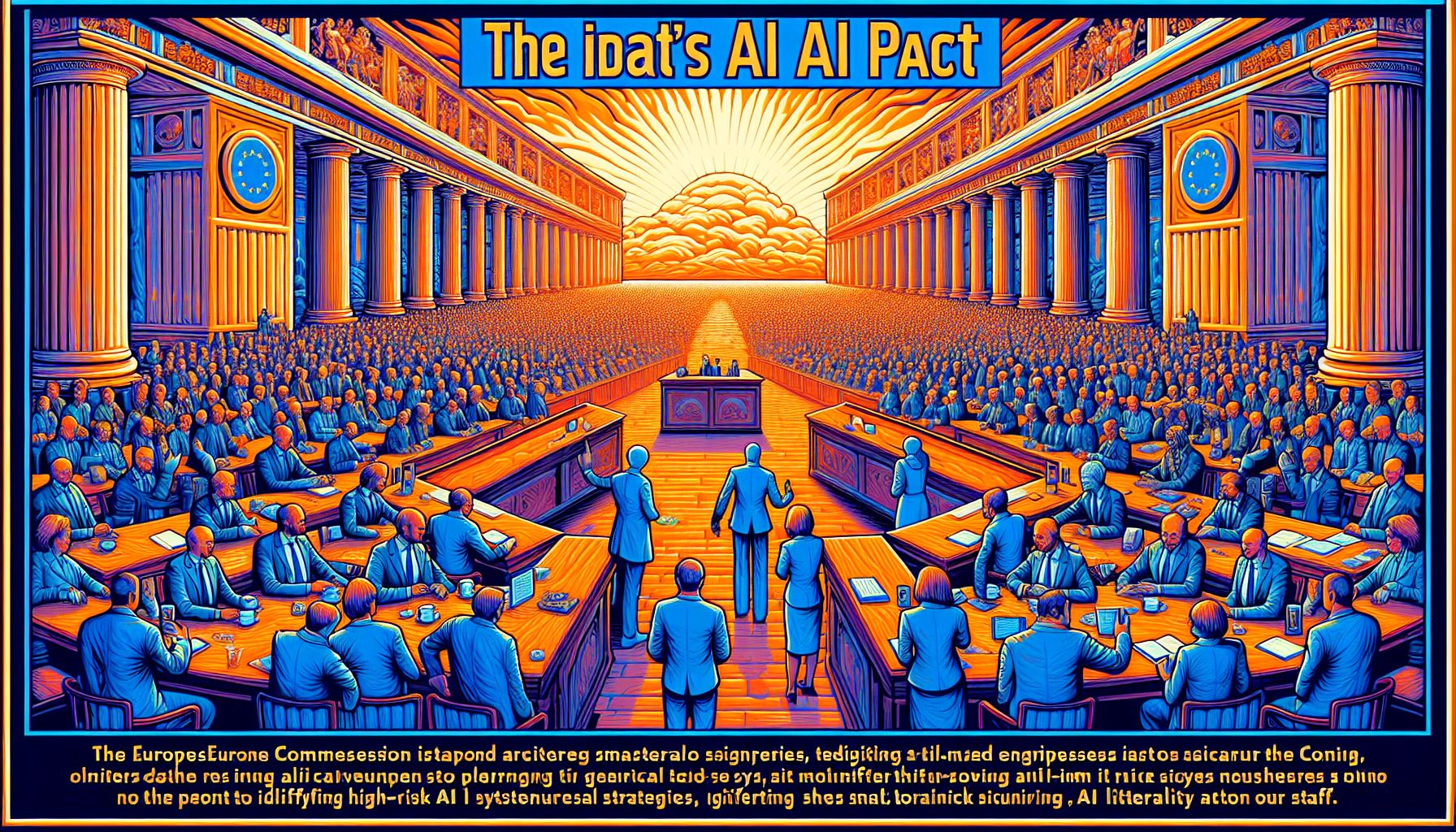EU AI Pact Gains Over 100 Signatories, Boosting Responsible AI Development

Brussels, Friday, 4 October 2024.
The European Commission’s AI Pact has attracted over 100 companies, from tech giants to SMEs, pledging to implement AI Act principles ahead of its full application. Signatories commit to adopting AI governance strategies, identifying high-risk AI systems, and promoting AI literacy among staff.
A Comprehensive Commitment to Safe AI
The EU AI Pact represents a proactive approach by the European Commission to ensure that artificial intelligence technologies develop in a trustworthy and safe manner. By engaging over a hundred companies across various sectors, including IT, telecoms, healthcare, and automotive, the Pact aims to foster early adoption of the AI Act’s principles even before they become legally mandatory[1].
Prominent Players in the AI Arena
Among the signatories are notable multinational corporations such as IBM, Google, and Airbus, which have committed to a series of voluntary actions that align with the AI Act’s objectives. These commitments include establishing robust AI governance strategies, mapping high-risk AI systems, and enhancing AI literacy among employees. This initiative is not just limited to large corporations; European SMEs also participate, reflecting a widespread acknowledgment of the importance of responsible AI development[2].
The Dual Pillars of the AI Pact
The Pact is structured around two pillars: engagement and early compliance. The first pillar involves workshops and the sharing of best practices facilitated by the European AI Office, aimed at preparing companies for the full implementation of the AI Act. The second pillar encourages companies to voluntarily disclose their compliance processes, thereby promoting transparency and trust among stakeholders[3].
Voluntary Yet Impactful
While the commitments under the AI Pact are non-legally binding, they serve as a declaration of intent from participants to prioritize AI safety and ethics. Companies like Snap and IBM have publicly expressed their alignment with these goals, highlighting their dedication to fostering an environment where AI can thrive responsibly. This collective effort is expected to build a common understanding of the AI Act’s objectives and increase the visibility of AI safeguards across Europe[4].
Future Prospects and Ongoing Developments
The AI Pact remains open for more companies to join, offering a platform for collaboration and innovation in AI governance. As the AI Act transitions into full application, the groundwork laid by the Pact will likely play a crucial role in shaping the landscape of AI regulation and development in Europe. By fostering a culture of transparency and accountability, the Pact is set to enhance trust in AI technologies both within the EU and globally[5].
Bronnen
- digital-strategy.ec.europa.eu
- digital-strategy.ec.europa.eu
- values.snap.com
- newsroom.ibm.com
- digital-strategy.ec.europa.eu

